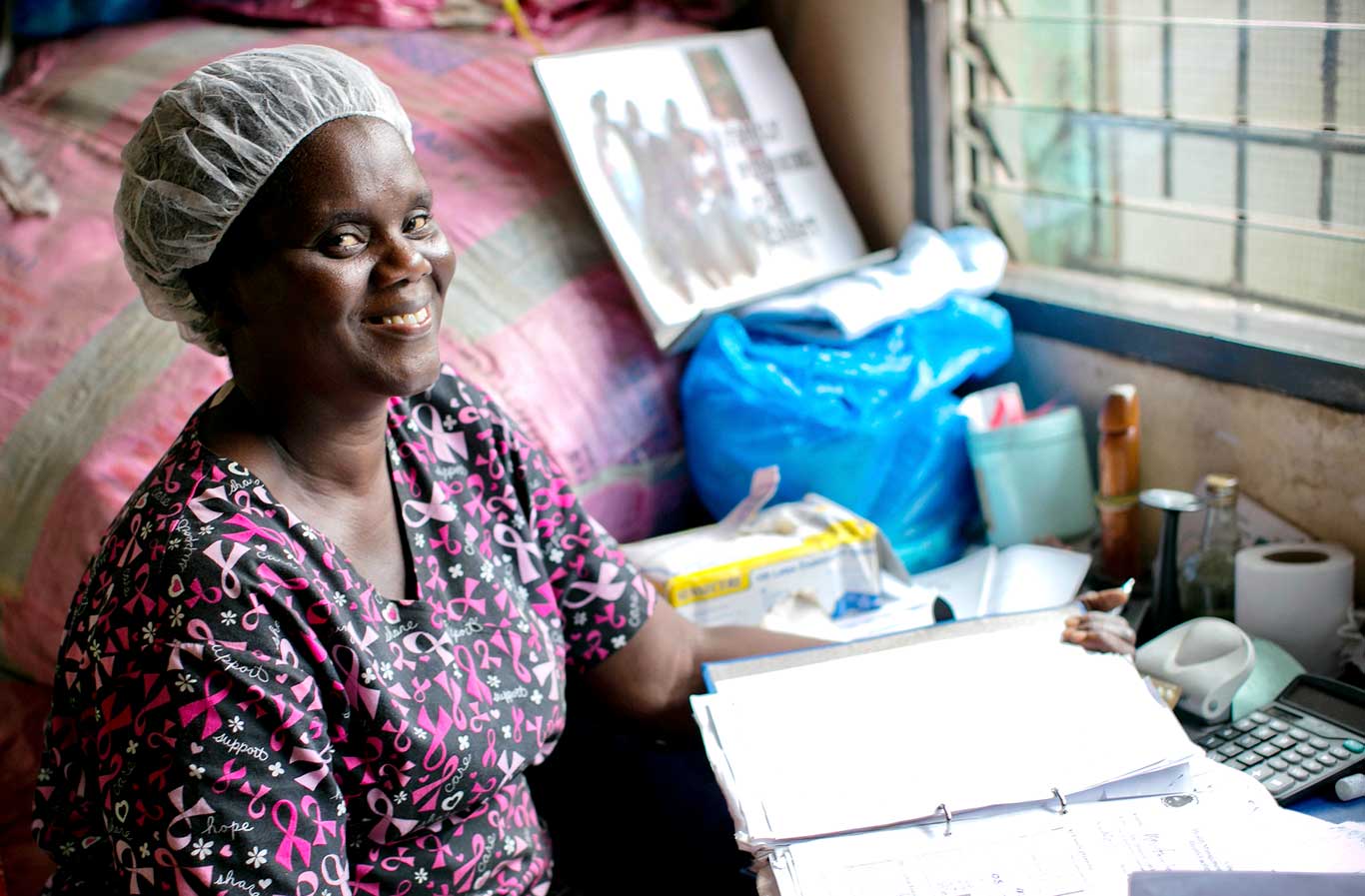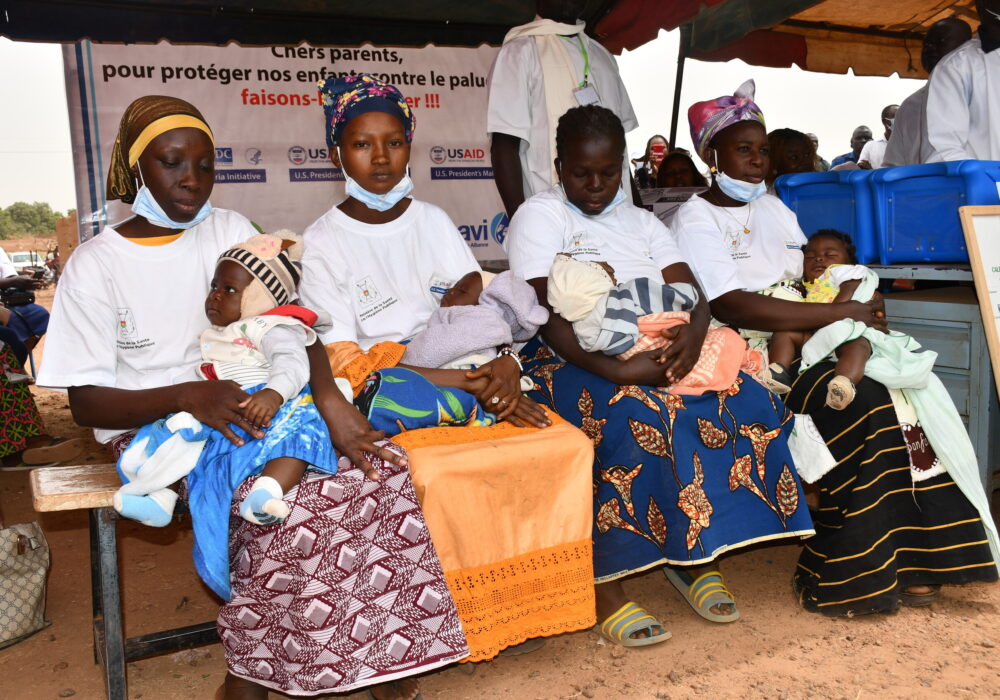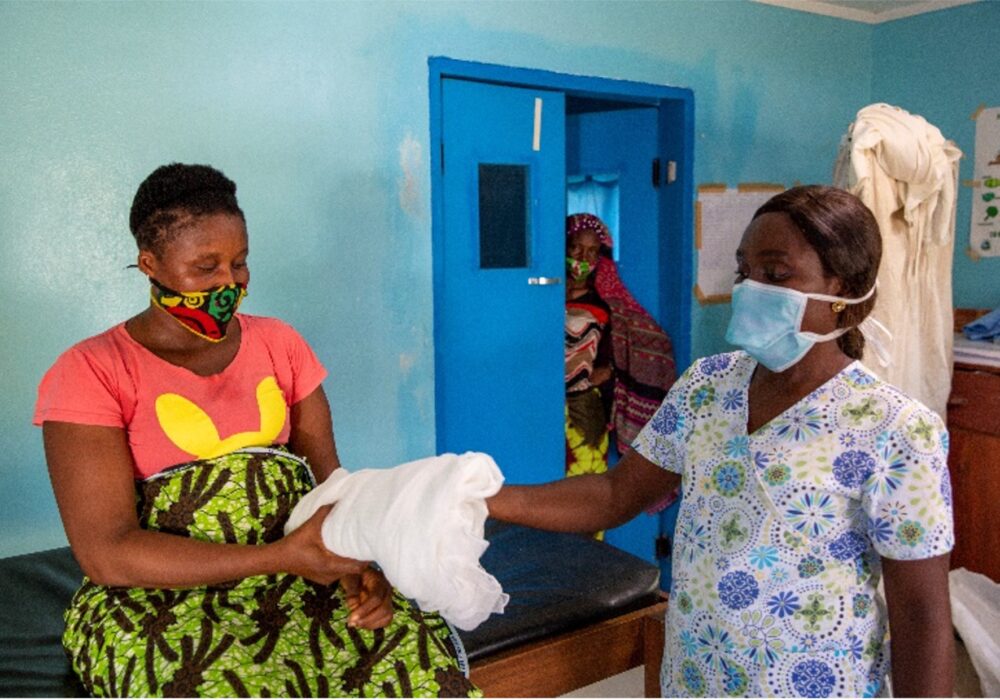Liberia
Working in Liberia since 2008; most recently in the fights against malaria and COVID-19.
- To support the COVID-19 response in 11 counties, Jhpiego trained 3,351 staff from 365 health care facilities on infection prevention and control, and procured supplies for 321 facilities. Additional support was provided to conduct weekly Incident Management and Surveillance meetings, deploy contact tracers, conduct risk communication and community engagement, and carry out spot checks to ensure integration and continuity of health services.
- As a result of Jhpiego’s efforts to address malaria in pregnancy under STAIP, the percentage of women who received long-lasting insecticide treated bed nets during their first antenatal care visit and after institutional delivery increased from 44% to 69%, and 38% to 53%, respectively.
- Support to the Liberia Association of Medical Laboratory Technologists (LAMLT) led to improved quality and increased sustainability of lab services through the development of pre-service education quality improvement standards and LAMLT licensure and accreditation processes, for the first time ever in Liberia. These standards are now used in 100% of lab schools, improving the quality of laboratory pre-service education and producing a better equipped and fit-for-purpose medical laboratory technologist health workforce.
- After the introduction of low-dose, high-frequency learning for quality improvement of maternal and newborn care in five (50%) teaching hospitals affiliated with midwifery pre-service education institutions, the hospitals showed an average improvement of 40% in meeting Ministry of Health quality standards, subsequently doubling the number of facility deliveries in one year at these facilities.
Our Work in Liberia
Enhancing Global Health Security: Expanding Efforts and Strategies to Protect and Improve Public Health Globally
Funded by the U.S. Centers for Disease Control and Prevention (CDC), this five-year project builds upon activities funded by CDC to support Global Health Security through implementation of programs and activities that focus on protecting and improving health globally through partnerships with Ministries of Health and other institutions. With an initial emphasis on addressing the COVID-19 pandemic, the project is supporting countries—including Liberia—and carrying out regional work in West Africa and South America to improve prevention of avoidable epidemics, including naturally occurring outbreaks and intentional or accidental releases of dangerous pathogens, and to improve ability to detect threats early and respond rapidly and effectively to public health threats of international concern. The project is being implemented by a Jhpiego-led consortium that includes the Johns Hopkins Center for Health Security, the Johns Hopkins University Applied Physics Laboratory, Global Scientific Solutions for Health, and Johns Hopkins University Center for Global Health.
Achieving Global Health Security through Strengthening Public Health Emergency Preparedness and Management Platforms
This five year-project aims to strengthen Liberia’s long-term capacity to improve national-to-subnational coordination and to detect and manage responses to outbreaks earlier, develop and advance Liberia’s Emergency Response Framework, and develop a national emergency management training program to support county-level response capacity.
Global Reach II
The U.S. President’s Emergency Plan for AIDS Relief has delivered remarkable lifesaving results, with several countries approaching UNAIDS 95-95-95 goals for HIV epidemic control. As countries like Liberia come closer to their targets, challenges to close the remaining gaps and cross the “last mile” become more difficult, requiring innovative, targeted approaches to ensure equity and extend services to the hardest-to reach populations and underserved areas. Global Reach II is a five-year project that supports the delivery of effective solutions to address these challenges in country-level HIV responses, adapting to the country contexts. Funded through the U.S. Health Resources and Services Administration (HRSA), Jhpiego leads the project with the following partners: University of California San Francisco, International Treatment Preparedness Coalition, Project ECHO, African Forum for Research and Education in Health (AFREhealth), Johns Hopkins University Center for Global Health and Ata Health Strategies.
Technical Assistance for the Malaria Vaccine Program
With funding from Gavi, the Vaccine Alliance, Jhpiego is providing technical assistance to the Ministry of Health to facilitate their efforts to plan for, introduce and scale up their malaria vaccine program through 2025, including an effective, phased introduction of the malaria vaccine that incorporates principles of equity to reach prioritized locations and groups. The program seeks to: 1) integrate the vaccine services with existing immunization, malaria and primary health care programs; 2) reinforce linkages between existing malaria and immunization programs; 3) prioritize reaching those most at need with effective multi-dose malaria vaccination; 4) integrate approaches to supervision, information systems, program monitoring and learning that adapt and improve country capacity to track and advocate for progress; and 5) use implementation science to inform local and global practice and bodies of evidence.
The people we serve
Country Contact
Lauretta W. Nagbe, Country Program Manager
#406 Payne Avenue, 20th Street
Sinkor, Monrovia, Liberia
Current and Recent Donors
CDC
CDC Foundation
Gavi, the Vaccine Alliance
German Development Cooperation (GIZ)
Health Resources and Services Administration
Korea International Cooperation Agency
USAID








